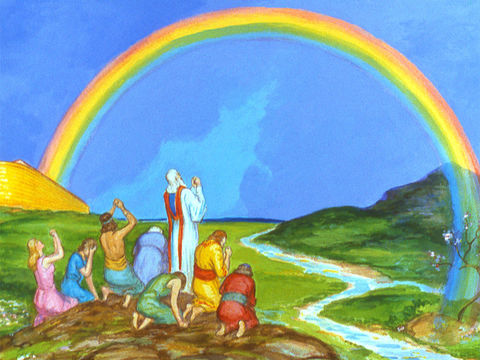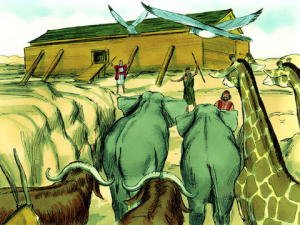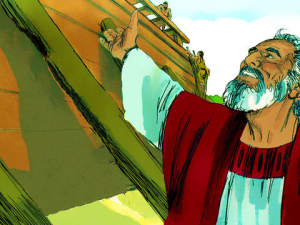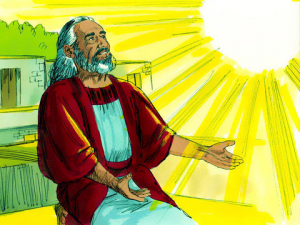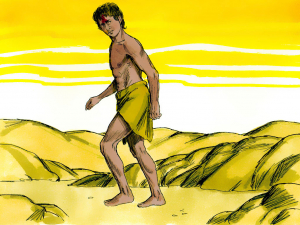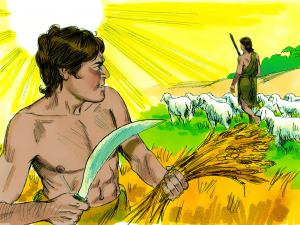Children’s Bible Program – Level 1: Lesson 17 “Families Grew into Nations”
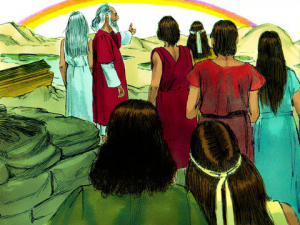
Sweet Publishing | FreeBibleImages.org
by Janth English
Read Together: God destroyed every human being on the face of the earth with the exception of 8 people – Noah and his sons, Shem, Ham, Japheth, and their wives. A pair of every unclean animal and seven pairs of all clean animals survived with Noah and his family on the ark. After the flood, God commanded Noah, his sons, and the animals to multiply on the earth, and that is exactly what they did. People lived longer so they were able to have many children. Soon families grew so big that they formed nations, and the nations were all separated into their own lands.
Read Together: Genesis 8:15-17; 9:1-2; 10:1-7, 19-22, 30-32
Discuss:
- Help your child to identify the eight people that survived the flood.
- Discuss with your child why God told Noah to take seven of every clean animal on the ark.
- Help your child visualize what the earth might have been like after a few years with so few people and so many animals which were multiplying very quickly.
- Explain to your student that though their numbers were increasing, the people were still united by language and culture.
- Help your child recognize that after the flood there were only eight people, and today, about 5 thousand years later, there are almost eight billion people all of whom are descended from Noah.
Review Memorization:
Genesis 11:6 “And the Lord said, ‘Indeed the people are one and they all have one language, and this is what they begin to do; now nothing that they propose to do will be withheld from them.’”


